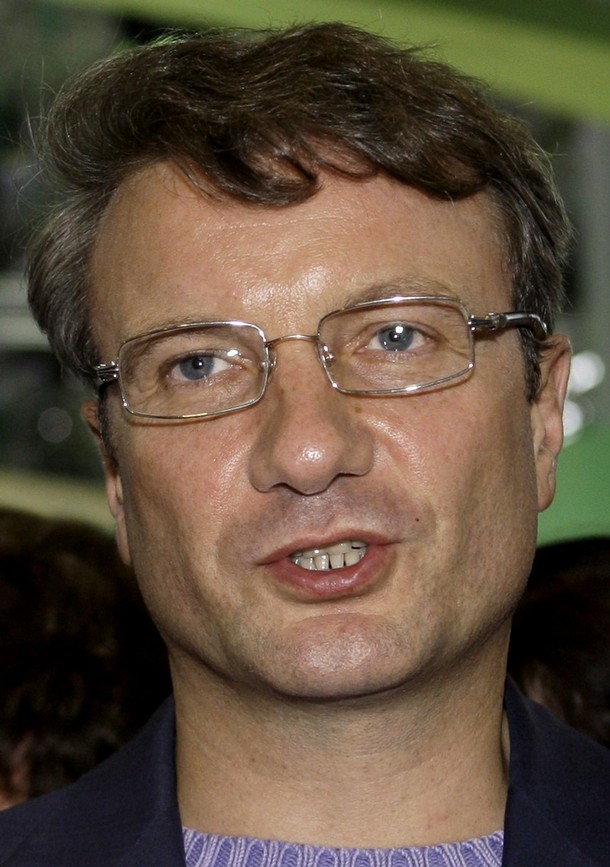
German Auto Maker Opel Passes from American to Russian Hands
Publication: Eurasia Daily Monitor Volume: 6 Issue: 107
By:

A "friends-of-Putin" consortium is about to acquire the German automobile manufacturer Opel, a subsidiary of the bankrupt U.S. company General Motors. The move is seen as the largest industrial acquisition in Europe by Russian interests since 1991. It marks an advance in the expansion of Russian state-connected capital within Europe, beyond the energy sector into manufacturing. And it illustrates a Russo-German process of economic interlocking with strategic implications, which began during Social-Democrat Gerhard Schroeder’s chancellorship and continues on Christian-Democrat Chancellor Angela Merkel’s watch.
As announced officially on June 1, the "New Opel" consortium includes the Russian state-controlled Sberbank with 35 percent; the Russian automobile producer GAZ in Nizhni-Novgorod, majority-owned by the now-insolvent oligarch Oleg Deripaska, as the new "industrial partner" to Opel; and the Canada-based Magna company with 20 percent and the operator’s role in the new venture. General Motors retains 35 percent for the time being and Opel’s German employees 10 percent.
The quick-fix transaction took shape following Russian Prime Minister Vladimir Putin’s May 23 conversation with Chancellor Merkel, who subsequently ruled out other options for rescuing Opel. The Russian entry is intended to generate the production of moderately-priced vehicles for the Russian market. This promise is one of the key planks in the Russian leadership’s "national programs," a set of unfulfilled social programs and abortive social compacts between rulers and ruled.
Sberbank’s President German Gref personally handled the financial side of this transaction for the Russian side. Gref has been a Putin friend since their days in St.Petersburg and he served as economics minister for seven years (a ministerial longevity record) during Putin’s presidency. In the consortium, Sberbank is practically fronting for the heavily indebted Oleg Deripaska, who is currently unable to invest in New Opel but is eyeing its technology for his GAZ company. Magna partnered with this Putin friend in 2007, hoping to break into the Russian market, but Deripaska had to sell his 20 percent Magna stake in 2008 to creditors. Sberbank is a major creditor to GAZ and to Deripaska, as part of a financial rescue package authorized by Putin for this favored oligarch. Deripaska personifies the former "Yeltsin Family," with its business interests allied with those of Putin’s circle.
Magna, a major international supplier of automobile components and spare parts (and, more recently, a vehicle assembler in Austria for other companies), strives to become an automobile manufacturer in its own right. The company’s president, Austrian-born Frank Stronach, pursues this ambition despite the recession, low demand projections for the years ahead, and redundant auto-manufacturing capacities throughout Europe. Despite these trends, Stronach seeks to turn Magna into a vehicle manufacturer through the New Opel venture, focusing on the Russian market. He apparently plans to combine Opel’s (and parent company General Motors) technologies with GAZ’s production capacities and its top-level backing in Russia, hoping to capture a considerable share of the Russian market after the current recession (Sueddeutsche Zeitung, June 2).
The Russian government’s recent hike of import duties on foreign vehicles presages a protected market for them being manufactured in Russia by joint ventures. Such measures are in line with the Kremlin’s declared goal to establish a modern automobile industry in the country for its populace. The New Opel venture, should it survive its birth, might become an implementing agent of that Russian government program.
Germans are being asked, however, to subsidize this venture heavily. The basis of the deal thus far is a nonbinding memorandum of understanding by which Magna would cut no more than 10 percent of Opel jobs and invest a mere 500 million Euros in the new venture by 2014. Magna is providing an immediate bridging loan of 300 million Euros, repayable however by the German government within six months at a high interest rate. Coincidentally or not, Magna is itself urgently seeking an offsetting 300 million Euros loan from the Austrian government (Financial Times Deutschland, Sueddeutsche Zeitung, June 2).
Magna’s Russian partners do not appear to incur any obligation in entering this joint venture. GAZ could hardly deliver in any case: loss-making, deeply in debt, with sales plummeting on its obsolete vehicles, GAZ is surviving the recession on Sberbank loans. GAZ currently owes Sberbank $1.4 billion. Deripaska hopes to revive GAZ through technology transfers from Opel (including General Motors patents). The Deripaska industrial empire’s debts are estimated at $20 billion, owed to multiple creditors. Sberbank itself is said to be heavily exposed to debtors in Russia, some of whom can be expected to default during the current recession (Financial Times Deutschland, Handelsblatt, June 2).




